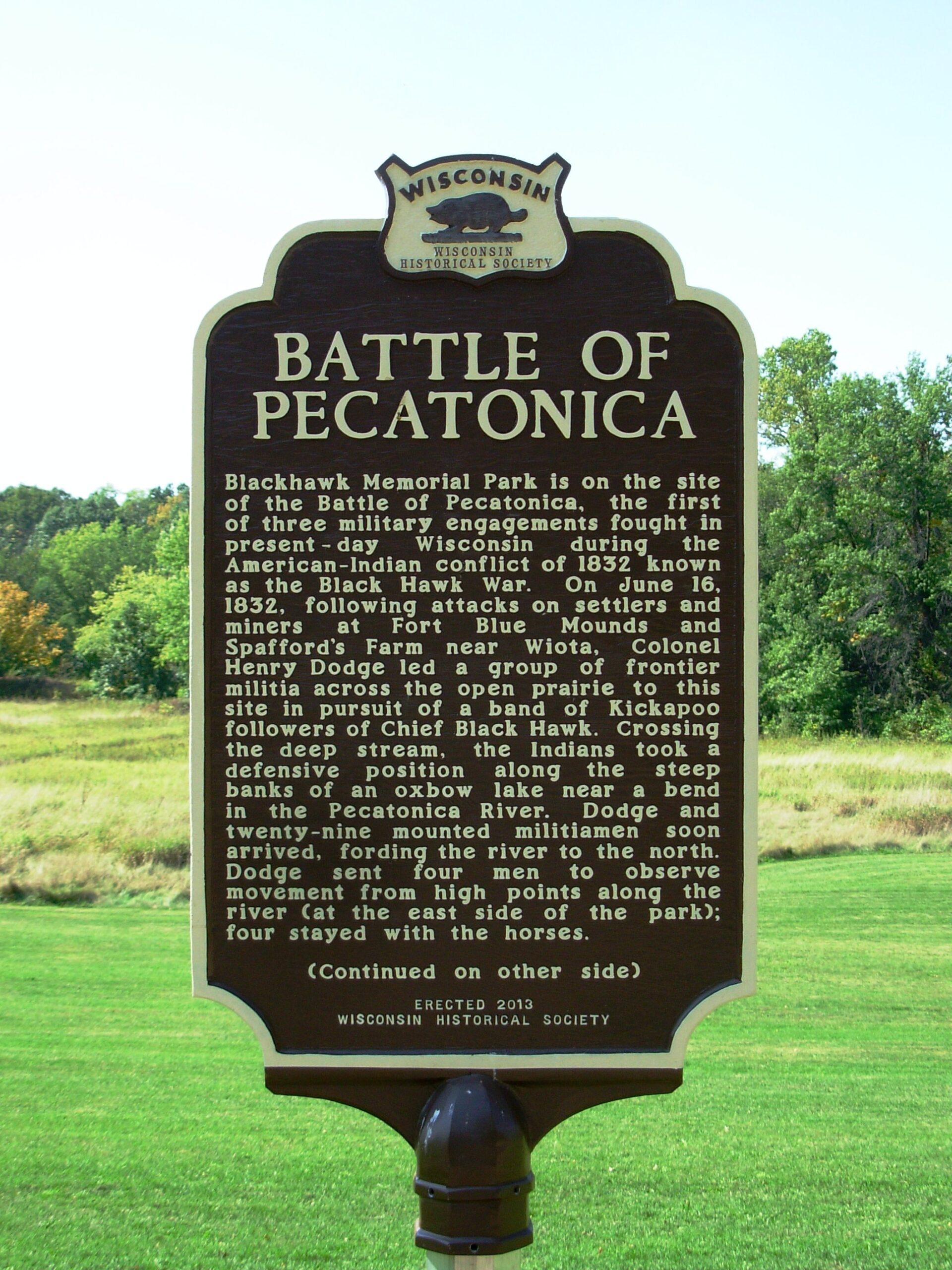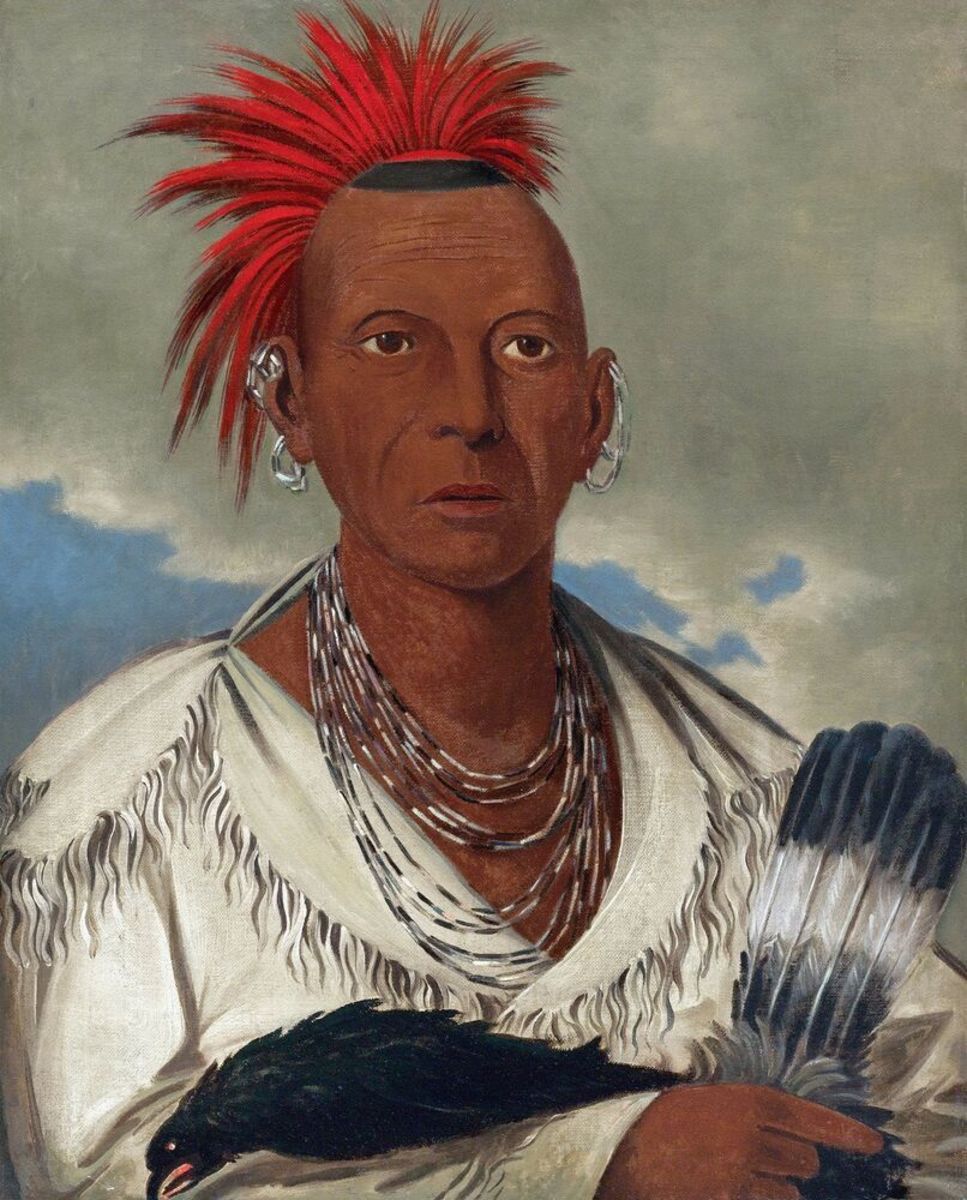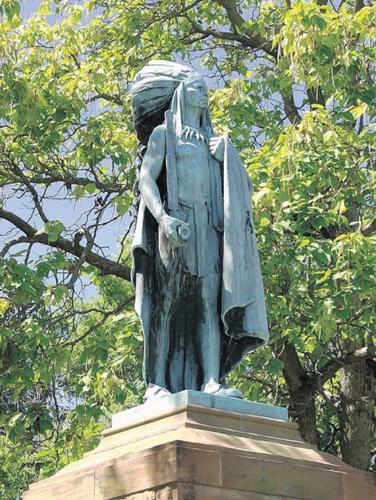
They told me a real battle had taken place just outside Wiota, a postage-stamp town within the school district where I’d taken a job. It wasn’t a battle really, I mean, nothing like tanks and aerial bombardment. After all, we’re talking about 1832, when Iowa was still in diapers and the wilderness began a mile or two west of Lake Michigan. If that.
But it was a fight, and men did die, and I knew it was all true when I drove into the county park where my anxious students told me it happened. The fight was June 16, 1832, and it was the first of three battles in the ensuing war we’ve chosen to call “the Blackhawk War.”
The combat soon escalated hand-to-hand, or tomahawk to sword, and soon enough all 11 Kickapoo hostiles were dead. “Happened right here, up by Wiota,” my eager students told me, “’Battle of Pecatonica.’”
Black Hawk himself was the headman of a consortium of tribes that had survived the war of 1812, but had become remnants of the tribes they once were—Sac (or Sauk) and Fox and Kickapoo, along with a few Pottawatomie and Winnebago, most all of whom were linked by the fact of their having been expelled—thrown off—their homelands to the east and sentenced to a land that would be called Iowa. They were, after a fashion, among Hawkeye originals.

Black Hawk just couldn’t take the oppression, so he gathered his troops and went to war because he wanted to go home, east of the Mississippi, to live where the ancestors were buried, the homeland. White men in blue uniforms said no, so Black Hawk went to war.
Another famous headman was Sac chief Keokuk (header image), as in Keokuk, Iowa. He and Black Hawk were great tribal leaders—same consortium of tribes–who faced a similar foe: encroaching white settler populations. But the two of them chose to lead their people in polar opposite directions. Keokuk was a pragmatist. He took one good look at the numbers and told himself that only peace could lead to the survival of the people he led and loved.
His contemporary, Black Hawk, looked over the very same world and sent his warriors into war. Keokuk, using his legendary oratorical skills, convinced his warriors that peace was the only avenue to survival—the settlers were far, far greater in number.
War or peace—when to go, where to go? Who to follow? Who to fight?
There is a time for every season under heaven, the Bible says, a time to make love, a time to make war; and because there is a time for everything, choosing whether to pick up a war club or offer a peace pipe is a question we all face, everyone, in war or out. To act or not to act; to be or not to be.
In the Black Hawk War of 1832, which chief was a leader to follow? —Black Hawk, who wanted to go home to his loved ones and was willing to die to make it happen; or Keokuk, who didn’t want to see his people go to a war they were sure to lose?
“Discretion,” Shakespeare says in Henry IV, “is the better part of valor.” Sure, but discretion said go to war when the smoke cleared over destroyed destroyers at Pearl Harbor. Or Fort Sumter–would Lincoln have better served his people by allowing the South to secede?

1780-1848
located in Keokuk, Iowa
Two Sac chiefs answered the same forever question in polar opposite ways. Keokuk has an Iowa city named after him, but the high school where I taught way-back-when, the school with an ancient battlefield just down the road, that school was named Blackhawk, and when our ball players took to the field or floor, they were the warriors. And the warriors were good.
When conflicts strike, no matter what the stakes, we step up or step back, don’t we?
Lord, have mercy.



4 Responses
Hi Jim,
There is a Pecatonica village as part of Rockford, Illinois where I pastored many years ago.
War or peace, indeed. There seems to be no easy road home, away from oppression and injustice.
Just ask the Palestinians, who have tried everything to be recognized as a legitimate people group.
They are dying big time and the US does not give a damn. We just keep supporting our “friends” instead of sanctioning them.
I can’t answer that question for the nations or the politicians, or even other Christians. I can only answer to Lord Jesus, who (best as I’ve been able to tell) commands me to love, to die, to make peace, and to rescue — but never to kill. I heard him speak to me in that regard when I was a teen-aged disciple, and I haven’t heard a contrary command from him yet.
Yes, thank you for saying it.
Thanks James, and welcome back to the Reformed Journal posts
As always, your articles on American history events are very interesting and informative Today’s was very interesting again. Some situations and areas of conflict haven’t changed since 1812
Hope you are doing well, we are both aging since our years as students at Dordt. Every day is a blessing. Best to you in the coming year